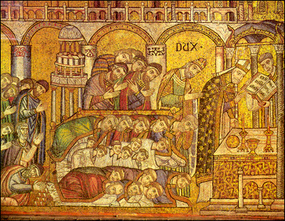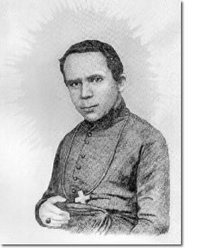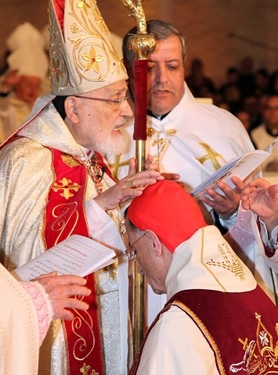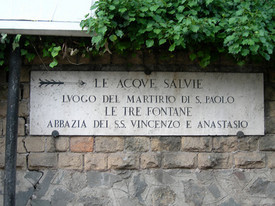We can’t live in abstractions. Reality as it is, God in Himself, is revealed in the concrete. The temptation is to let ourselves be consumed by what is non-essential, with things that burdensome or just plainly a pain. God is not known in the abstract; God is only revealed in the concreteness of life: in love, goodness, beautiful things, friendship, prayer, the sacred Liturgy, the proclamation of the Word, the sacred Tradition of the Church, and the like. Lent for some people is an abstract time of the Church’s calendar because they don’t necessarily know the aim, the goal, the necessity and the personal. What we all should bear in mind is that Lent is a simple time for getting back to basics so that these basics become virtue and virtue becomes a permanent way of looking at things in front of us. A little girl who does religious education following the method of the Catechesis of the Good Shepherd (CGS) focusses our attention in how she experiences this period of conversion. “What is Lent? Lent is a time of reflection, of preparing ourselves for the resurrection of Our Lord… by doing something that takes a great effort… a time of sharing and giving ourselves, body and soul to God and the Holy Spirit” (Jessica, 9 years old, Chihuahua Mexico, Journals of the Catechesis of the Good Shepherd, 1984 – 1997, p.149).
Jessica’s rather simple declaration hopefully gives you pause during the day to give heart and the mind the space to do something other than work. Lent, like Advent, is a fitting to time of the liturgical year to reflect on the meaning of the Cross and the our Lord’s resurrection (this is what we call the Paschal Mystery). In what concrete ways does God the Father, God the Son and God the Holy Spirit capture our imagination –our heart? The founder of the CGS movement Sofia Cavalletti writes: “Simplicity also imposes a kind of asceticism, but it is an asceticism that is joyful, happy, dynamic, and opens out to spaces that are always becoming wider. It is an asceticism that is invigorating, filling the lungs with fresh air that empowers us to keep climbing toward the summit, where the space we will stand on might have become smaller, but the space before us, the panorama we view, will have opened out on the infinite” (“Holy Simplicity,” Journals of the Catechesis of the Good Shepherd, 2003 – 2008, p. 4).
 Père [Cardinal] Yves Congar, OP, in 1963 quoted by Geoffrey Hull in The Banished Heart (2010):
Père [Cardinal] Yves Congar, OP, in 1963 quoted by Geoffrey Hull in The Banished Heart (2010): 

